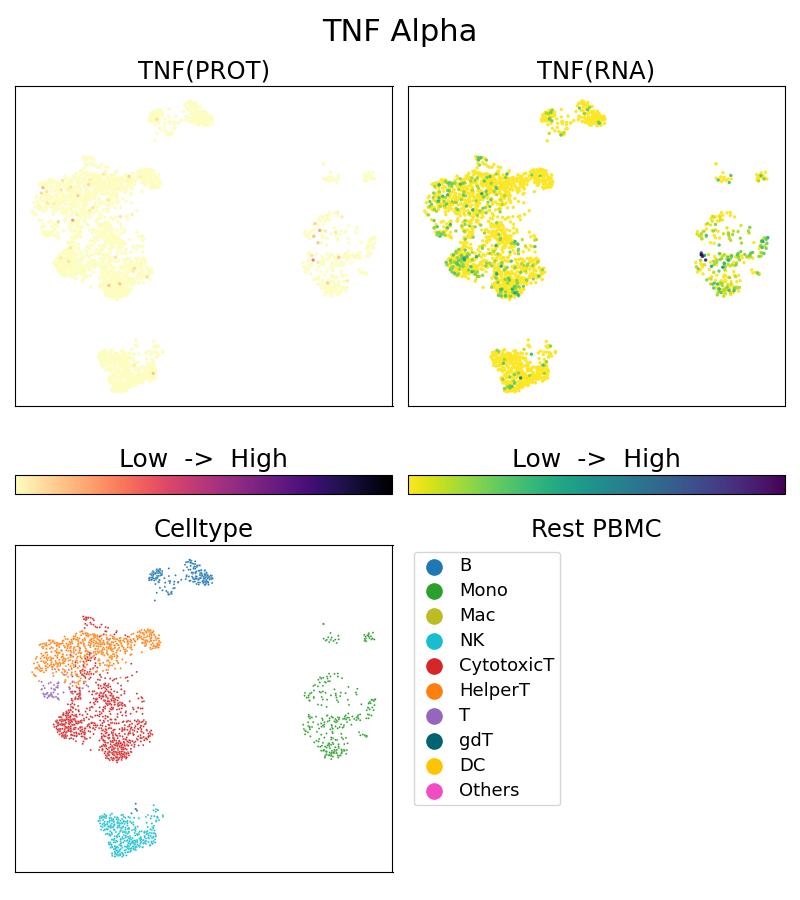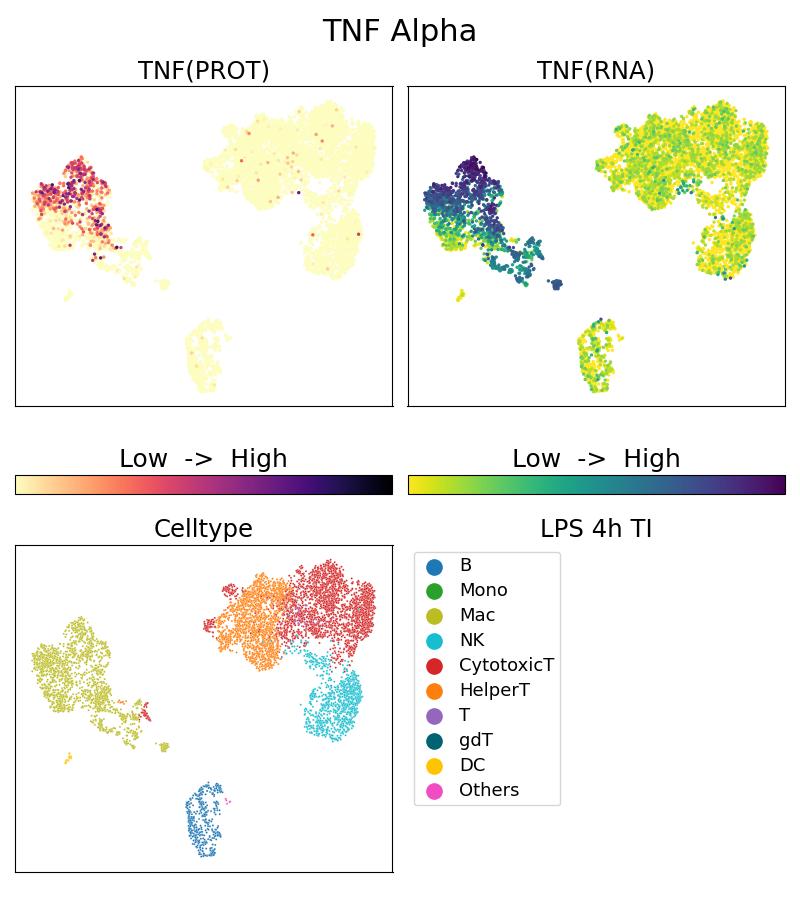Validation Data Gallery
Tested Applications
| Positive Single Cell (Intra) detected in | 10x Genomics Gene Expression Flex with Feature Barcodes and Multiplexing product. |
Recommended dilution
| Application | Dilution |
|---|---|
| SINGLE CELL (INTRA) | <0.5ug/test |
| It is recommended that this reagent should be titrated in each testing system to obtain optimal results. | |
Product Information
G60291-1-5C targets TNF Alpha in Single Cell (Intra) applications and shows reactivity with Human samples.
| Tested Reactivity | Human |
| Host / Isotype | Mouse / IgG2b |
| Class | Oligo Conjugate |
| Type | Monoclonal |
| Immunogen | TNF Alpha fusion protein Ag11413 相同性解析による交差性が予測される生物種 |
| Full Name | MultiPro® 5CFLX Anti-Human TNF Alpha (7B8A11) |
| Calculated molecular weight | 233 aa, 26 kDa |
| GenBank accession number | BC028148 |
| Gene Symbol | TNF-alpha |
| Gene ID (NCBI) | 7124 |
| ENSEMBL Gene ID | ENSG00000232810 |
| RRID | AB_3673901 |
| Conjugate | 5CFLX |
| Full Oligo Sequence | CGGAGATGTGTATAAGAGACAGACACCGTATGATAGGCCCATATAAGAAA |
| Barcode Sequence | ACACCGTATGATAGG |
| Form | Liquid |
| UNIPROT ID | P01375 |
| Storage Buffer | PBS with 1mM EDTA and 0.09% sodium azide {{ptg:BufferTemp}}7.3 |
| Storage Conditions | 2-8°C Stable for one year after shipment. |
Background Information
TNF, as also known as TNF-alpha, or cachectin, is a multifunctional proinflammatory cytokine that belongs to the tumor necrosis factor (TNF) superfamily. It is expressed as a 26 kDa membrane bound protein and is then cleaved by TNF-alpha converting enzyme (TACE) to release the soluble 17 kDa monomer, which forms homotrimers in circulation. It is produced chiefly by activated macrophages, although it can be produced by many other cell types such as CD4+ lymphocytes, NK cells, neutrophils, mast cells, eosinophils, and neurons. It can bind to, and thus functions through its receptors TNFRSF1A/TNFR1 and TNFRSF1B/TNFBR. This cytokine is involved in the regulation of a wide spectrum of biological processes including cell proliferation, differentiation, apoptosis, lipid metabolism, and coagulation. This cytokine has been implicated in a variety of diseases, including autoimmune diseases, INS resistance, and cancer.
Protocols
| MultiPro™ Cell Surface and Intracellular Staining Protocol | Download protocol |
| 10x Genomics Cell Surface Protein Only Staining Protocol | Download protocol |

